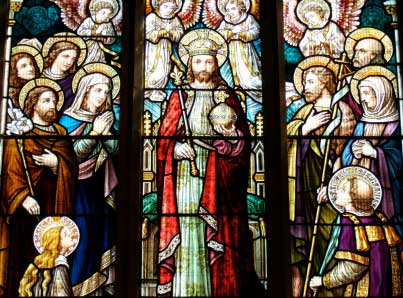Prayer for Ourselves
O Mother of Perpetual Help, with the greatest confidence I come before thy Sacred Picture in order to invoke thine aid. Thou hast seen the Wounds which JESUS hast been pleased to receive for our sake; thou hast seen the Blood of thy Son flowing for our salvation; thou knowest how much thy Son desires to apply to us the fruits of His Redemption. Behold, I cast myself at thy feet, and; pray thee to obtain for my soul the grace I stand so much in need of. O Mary most loving of all mothers, obtain for me from the heart of JESUS, the grace
( Here mention your petition)
O Mother of Perpetual Help, thou desirest our salvation far more than we ourselves; thy Son has given thee to us for our Mother, thou hast thyself chosen to be called Mother of Perpetual Help. Show then that thouart really my Mother, show that thou art justly called Mother of Perpetual Help. I trust not in my merits, but in thy powerful intercession; I trust in thy goodness, I trust in thy motherly love. Mother of Perpetual Help, for the love thou bearest of JESUS thy Son and; my Redeemer, for the love of thy great servant Alphonsus, for the love of my soul, obtain for me the grace I ask from thee.


.jpg)
.jpg)







































